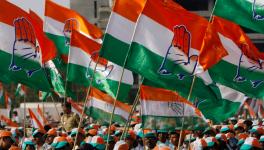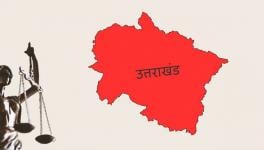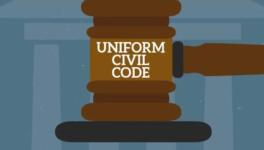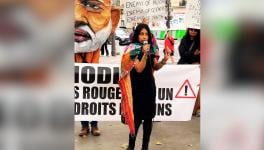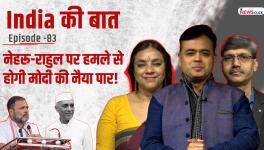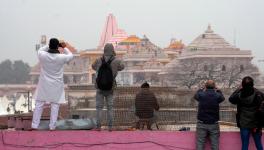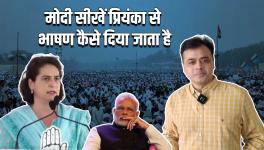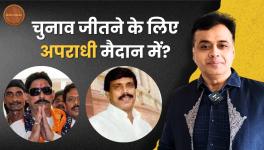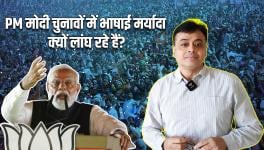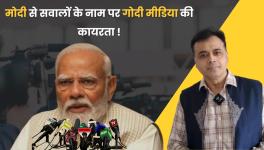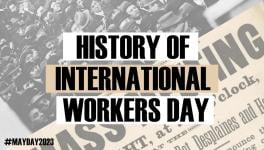Remembering Imtiaz Ahmad, who Taught the Most Enduring Values

Imtiaz Ahmad. Image Courtesy: Twitter/@syedurahman
I witnessed an unforgettable and soul-searing moment on the evening of 19 June at the Qabristan Hazrat Panj Piran Basti in Delhi’s Nizamuddin locality. Before the renowned Prof Imtiaz Ahmad was laid to rest, a maulana conducting the final ceremonies asked those present to answer a question. It was: “Koi waris hai—Does the deceased have heirs?” The very next instant, all of Prof Ahmad’s students, who had gathered in numbers to attend the solemn occasion, replied in unison: “Hum sab waris hain—all of us are his heirs!” They then collectively placed earth, as per the tradition, on the grave of their teacher, the celebrated professor who taught at Jawaharlal Nehru University and the University of Chicago and who shaped generations of students, scholars and researchers.
Prof Ahmad’s exemplary contributions are reflected in how the students responded to the call for his heirs. He is no longer with us to share insightful lectures, articles and books and, above all, hold engaging conversations. He passed away at the All India Institute of Medical Sciences, Delhi, on 19 June, leaving a rich legacy of pioneering work on political sociology, which he taught in JNU for decades.
Stand on Uniform Civil Code
Just a day before his sad demise, I was discussing the Uniform Civil Code (UCC) with the former chief minister of Maharashtra, Prithviraj Chavan and the noted documentary film-maker Suhas Borker. We discussed his persuasive and reasoned position wherein instead of a uniform code, he felt India needed a concerted effort to sensitise people to take recourse to the civil laws to remedy any injustices they faced under their personal laws. He had articulated this position after the Bharatiya Janata Party (BJP) asked for a UCC in 1985 against the backdrop of the Rajiv Gandhi government passing a law in Parliament to nullify the Supreme Court’s momentous Shah Bano judgement. The court had granted Bano, a divorced Muslim woman, maintenance under civil law.
That year, Prof Ahmad (in the presence of well-known political activist and former Lok Sabha Member of Parliament late Pramila Dandavate) also delivered a lecture in a packed dining hall at the Kaveri hostel, JNU on the Shah Bano judgement and the government’s countermove. Addressing the BJP’s demand for a UCC, he presciently said it would be impossible to create such a code unless there is a common definition of marriage, divorce, and other issues that fall under the scope of personal laws of diverse communities. What he said 38 years back still has immense significance—and the BJP has continued to mobilise public opinion on the UCC, making it central to its electoral strategy. Now the Law Commission of India, which in an earlier report opposed the UCC, has, under a new chairperson, Justice Ritu Raj Awasthi, sought inputs from stakeholders to submit a new report to the government.
Professor Ahmad cogently argued that while marriage is a sacrament for Hindus, it is a contract for Muslims, which the partners formalise through marital relations. He said the differences between Hindus and Muslims regarding divorce are well-known. Therefore, he said, issues concerning marriage and divorce would remain irreconcilable without a standard definition that includes everybody. Without this, all talk about a UCC would remain highly contentious and intensify communal discord, even sparking violence.
The UCC appears as a sinister imposition by the majority on the minorities as if to trample upon their sacred beliefs. That is why Ahmad supported the idea of a political and social campaign, including parties, civil society and the legal fraternity, to inform people of diverse faiths why they must opt for civil laws. Indeed, Shah Bano had also moved the Supreme Court seeking justice for grievances arising from a personal matter.
Chavan and Borker appreciated the views, but, tragically, since 2014, JNU authorities have restricted such talks and discussions as Prof Ahmad gave in 1985. Now, it is almost impossible for students to invite speakers to hostel messes in JNU, as the culture of sharing thoughts and ideas about India’s many-layered complexities is being relegated to the past.
Today, the BJP is relentlessly putting the UCC at the centre of electoral concerns and anchoring it in its majoritarian agenda. To counter and defeat it, the stand of Prof Ahmad is of critical importance. His views were regarded as highly illustrious, and featured in the International Encyclopedia of Social Sciences, while the Supreme Court of India cited his seminal ideas about social stratification among Indian Muslims.
Sensitivity and Concern Amid Erudition
Prof Ahmad’s sensitivity endeared him to people across age barriers. He once telephoned me after reading my 2015 piece on Utkalmani Gopabandhu Das, in which I referred to the Japan Code of Education of 1872, which made education free and compulsory for children. I had drawn the connection between this decision and Japan’s military and economic rise by 1905. Indeed, I referred to Nobel laureate Amartya Sen’s comments on this code from his book, Identity and Violence.
The associate of Mahatma Gandhi and freedom fighter Utkalmani Gopabandhu Das preceded Sen in discussing the Japan Code of Education in 1912. In a speech delivered at the Puri District Educational Conference, Das demanded the contemporary British government introduce such a code for Odisha [then Orissa] and all of India to revolutionise education.
Prof Ahmed wanted the source of Gopabandhu Das’s speech and expressed admiration for his erudite knowledge of the Japanese code and his desire to replicate it across the country. He said it was extraordinary that someone stationed in the eastern part of India was so well-equipped with vital information concerning Japan and its spectacular rise. I remember he asked me if Gopabandhu Das had ever visited Japan, and I recall telling him that he had hardly ever left Odisha, though he had once visited Lahore.
Ahmed and FG Bailey’s Study of Odisha Village
When I joined JNU in 1979 for my master’s in political science, Prof Ahmad taught my batch political sociology. In the very first class, each student was asked to introduce themselves, and when I said I had studied in Odisha, he immediately asked if I knew of Bisipara village in the Kandhamal district. When I said I had even passed by it once, he informed the class that Prof FG Bailey, a British social anthropologist (School of African and Oriental Studies), had studied its social structure in the 1950s. That study examined how the State, democracy and new forms of the economy were changing the traditional power and status quo. That was my first exposure to Prof Ahmad’s vast academic profile, which I explored more and more during my time at JNU.
Optimist for Secularism and Composite Culture
Unfortunately, hate-mongers targeted Prof Ahmad for his religious identity, secular outlook, and progressive views. He would employ his deep understanding of religions and sociological insights to explain social changes rationally and critically. Once, he told me the Mahabharata TV serial was educative because of the world-views it illuminated and wished other episodes were aired to derive more lessons from the epic.
His legacy will endure and inspire further generations of students and academics. On 28 May last year, in an interview with journalist Abhay Kumar of Forward Press, he optimistically said, “India would very soon overcome this phase of religious frenzy.” He added, “Secular democracy and composite culture will last… This difficult time will soon pass.”
Abhay Kumar says, “One acquainted with Prof Ahmad’s work and ideas will be left with no doubt that he is the epitome of what is good in India—secularism, composite culture, rationality and a quest for equality.” I, and generations of his students before and after me, were privileged to have been taught by such a great teacher—I can think of no better tribute to him.
The author served as Officer on Special Duty to President of India KR Narayanan. The views are personal.
Get the latest reports & analysis with people's perspective on Protests, movements & deep analytical videos, discussions of the current affairs in your Telegram app. Subscribe to NewsClick's Telegram channel & get Real-Time updates on stories, as they get published on our website.











